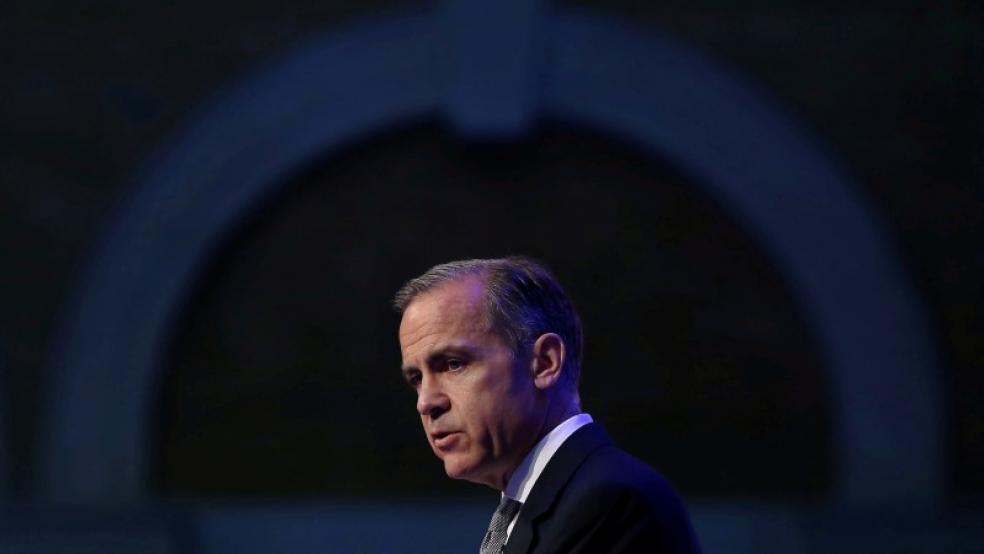LONDON, (Reuters) - Bank of England Governor Mark Carney said on Monday that he would keep a close eye on British consumers this year to see if their buoyant mood since June's Brexit vote persists in the face of higher inflation.
Britain had one of the world's fastest-growing advanced economies last year, but the central bank has forecast growth will slow in 2017 as inflation rises above target in response to sterling's slump since the European Union referendum.In his first speech of 2017, to be delivered at the London School of Economics, Carney said there were increasing signs that British growth was relying on consumer spending - rather than investment or exports - which boded poorly for the future."Growth is expected to remain below past averages for the next few years. One corroborating indicator of this potential deceleration is that the UK expansion is increasingly consumption-led," he said in a text provided by the BoE.The central bank governor said evidence from the past 25 years showed that consumption-led expansions were generally weaker than broader-based ones, as they often became dependent on ever-higher rates of borrowing."At present, households appear to be entirely looking through Brexit-related uncertainties," Carney said."How household spending evolves, and the inter-temporal trade-off that households strike (when borrowing), will be important considerations over the next year. The Monetary Policy Committee will continue to monitor these dynamics," he added.British consumer borrowing grew by almost 11 percent in the year to November, its fastest pace since 2005, and earlier on Monday a charity warned of a big increase in calls from people worried about their debts compared with a year earlier.The BoE cut rates to a record low 0.25 percent in August and started a six-month program of government bond purchases to boost an economy which appeared to be entering a slump after June's vote to leave the EU.However, the economy subsequently performed much more strongly than economists expected. In November the BoE dropped plans to cut rates further, and next month policymakers will need to decide whether to extend the bond purchase program."Monetary policy can respond, in either direction, to changes to the economic outlook as they unfold to ensure a sustainable return of inflation to the 2 percent target," Carney said, echoing the BoE's existing policy stance.He added that the BoE was ready to tolerate some overshoot of its inflation target to limit the slowdown in growth, but said policymakers had stated there were limits to this.In November the BoE forecast 1.4 percent growth for 2017, after growth of around 2 percent in 2016. The BoE expects consumer price inflation will exceed 2.7 percent by the end of this year - up from 1.2 percent in November 2016 - due to a near-20 percent fall in sterling against the dollar.Currency markets have taken a gloomy view of Britain's longer-term prospects on the eve of a speech on Tuesday in which Prime Minister Theresa May intends to set out her Brexit strategy.Sterling fell below $1.20 to one of its lowest levels in the past 30 years on Monday due to fears May will prioritize curbing immigration over retaining close economic ties with the EU when she starts formal exit talks later this year.Carney reiterated on Monday that currency markets and consumers held sharply divergent views of Britain's prospects outside the EU, which at some point would need to converge.Bank of England's Carney says UK economy reliant on buoyant consumers

POOL New



